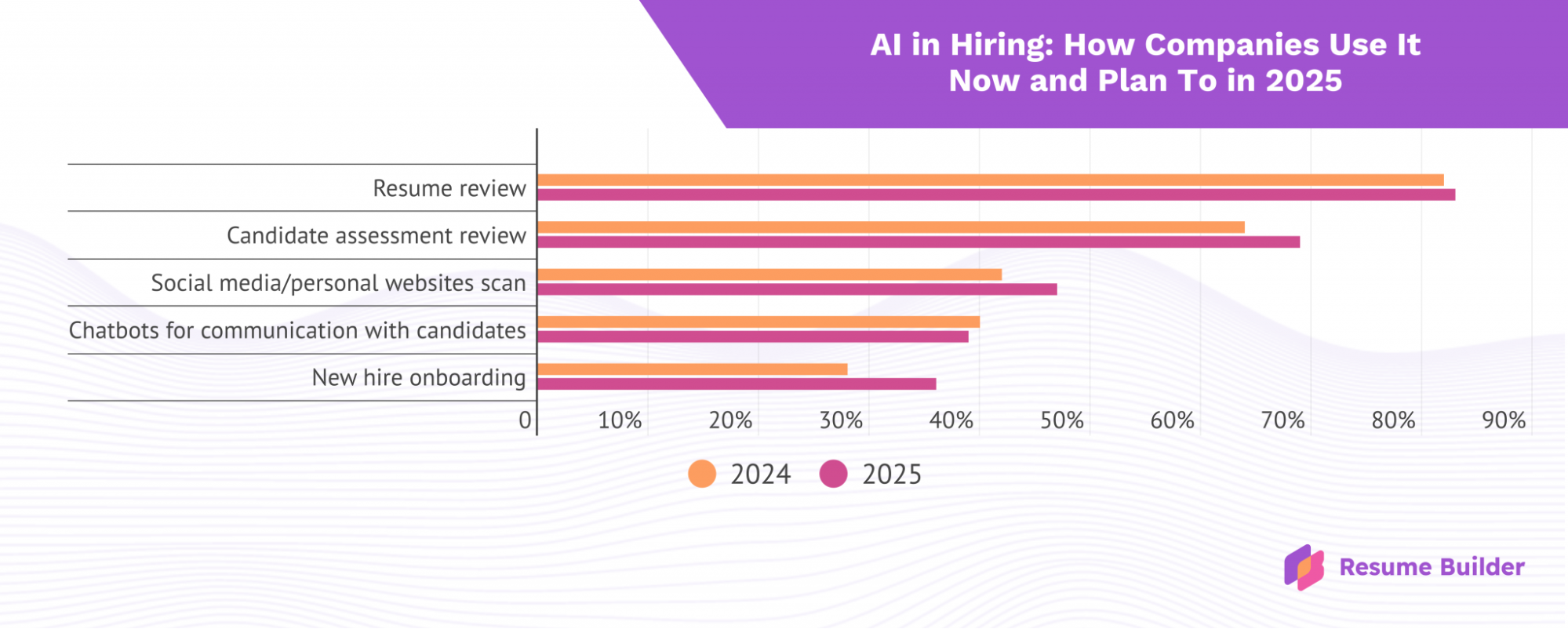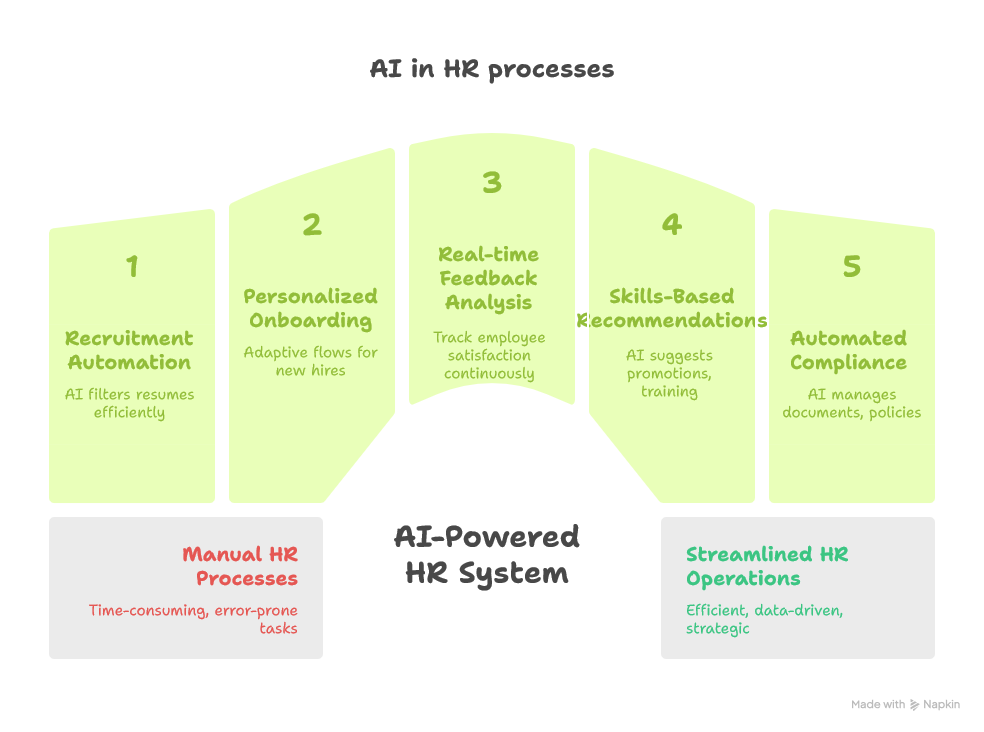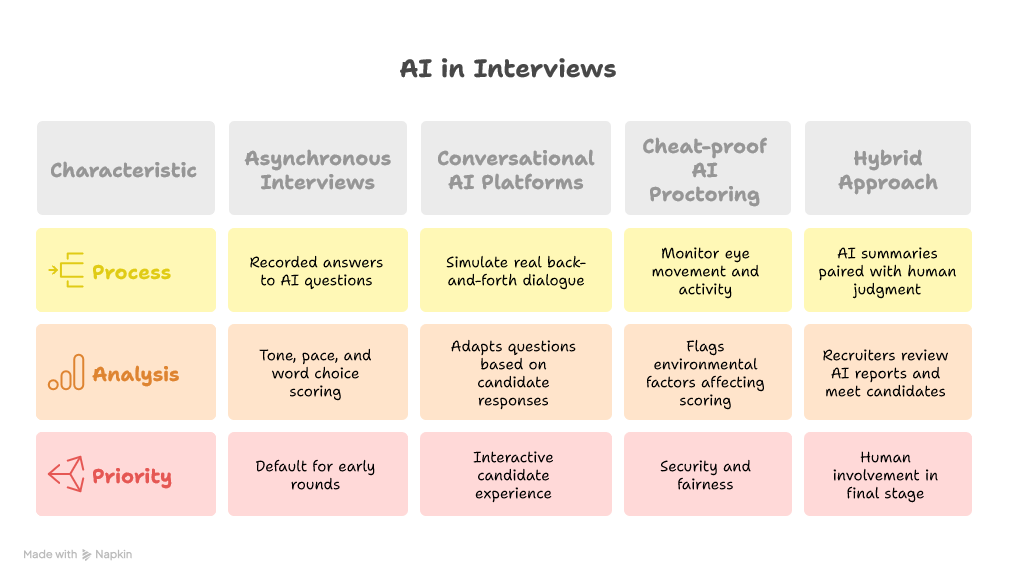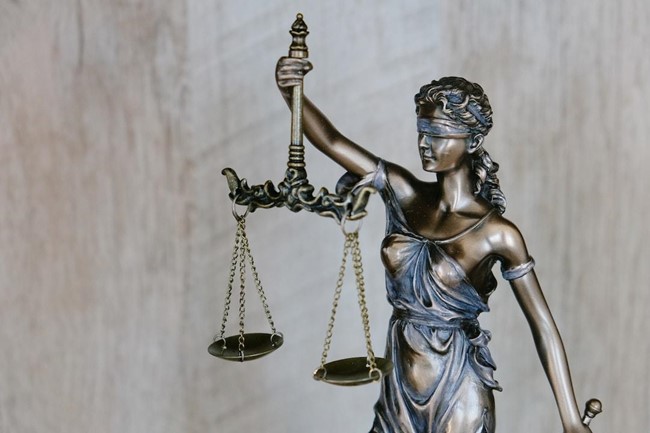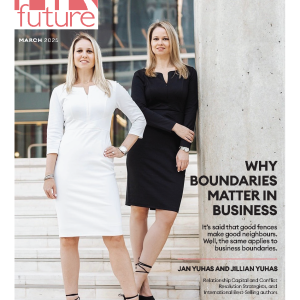What happens when a hiring manager gets replaced by a chatbot? For many candidates, that moment has already arrived. AI in HR now powers everything from resume screening to one-way video interviews, and it’s not slowing down. In fact, some companies already trust AI to evaluate tone of voice, facial expressions, and word choice to decide who moves forward. As the future of AI in HR unfolds, interviews start to feel less personal and more like performance audits. That’s a big change for both candidates and recruiters. In this article, we’ll break down how AI-led interviews work, what changes to expect next, and where the human touch is still needed.
Why HR leaders turn to AI for interviews
HR leaders face more hiring pressure than ever—tighter deadlines, larger applicant pools, and fewer resources. As a result, AI has become a practical response to a growing gap between what hiring teams need to accomplish and what they can realistically manage through manual methods. Companies often turn to a generative AI development agency to build or customize solutions that automate interviews, screening, and scheduling at scale.
According to a 2024 survey by Resume Builder, 51% of companies currently use AI in their hiring processes, and this number is projected to rise to 68% by the end of 2025. Notably, 24% of companies already rely on AI to conduct entire interviews, with expectations for this figure to increase to 29% by next year. These systems help manage tasks that stall traditional processes—coordinating schedules, screening unqualified candidates, or comparing inconsistent interview notes across departments.
Source: resumebuilder.com
Hiring volume also plays a role. Recruiters thoroughly review only 10–20% of candidates when faced with hundreds of applications per role. AI tools allow teams to scan an entire applicant pool without missing qualified candidates due to time constraints. Lack of specialized interviewers is another factor. In technical or niche fields, companies often struggle to find internal staff with the time and expertise to evaluate every applicant. AI platforms that generate interview questions or assess domain-specific responses help close this gap, without pulling engineers or department leads into hours of interviews.
Most HR leaders aren’t looking to replace human recruiters. But as workloads increase, AI in human resources becomes a way to stabilize hiring operations and prevent key steps from breaking under pressure. Adoption reflects necessity, not just innovation. Companies adopt these tools to keep processes consistent and achieve maximum team productivity. Adoption reflects necessity, not just innovation.
Smart, fast, and flawed? The pros and cons of AI interviews
AI interviews promise more than just automation—they offer speed, structure, and new ways to evaluate candidates. Companies adopt these systems to reduce hiring friction, improve early-stage filtering, and support faster decisions. As teams continue to prioritize efficiency, the benefits of AI in HR feel more practical than futuristic. But beneath the surface, these systems carry limitations that recruiters can’t afford to ignore. AI interviews bring major improvements to recruitment, but they also introduce new risks.Here’s a closer look at both sides.
✅ Pros of AI interviews
- AI can evaluate hundreds of candidates in a fraction of the time it takes a human recruiter. It automates resume parsing, schedules interviews instantly, and delivers consistent evaluations—saving hours per hire.
- Every candidate gets the same questions in the same order. This eliminates variability between interviewers and removes inconsistencies in tone or focus. For organizations trying to reduce bias and follow structured evaluation methods, AI creates a consistent baseline.
- AI can score basic communication skills, confidence, and keyword alignment before a human ever joins the process. Platforms like HireVue and InCruiter help recruiters identify top prospects early, so they can spend more time with the candidates who match the role.
- AI systems provide scoring models and analytical breakdowns of candidate performance. This allows teams to compare candidates using measurable factors, which reduces reliance on gut instinct or memory.
⚠️ Cons of AI interviews
- AI systems can reflect the biases in the data used to train them. Amazon’s AI recruiting tool famously downgraded resumes with references to women’s organizations. Without human oversight, biased results can go unnoticed and unchallenged.
- Soft-spoken candidates, non-native speakers, or individuals with neurodivergent traits may receive low scores from systems that prioritize energy, tone, or facial expression. AI may treat differences as flaws, even when they have no impact on job performance.
- Unlike human interviewers, AI doesn’t adjust its approach if a candidate seems nervous or needs clarification. There’s no encouragement, no small talk, and no chance to ask follow-up questions in real time. This creates a cold, one-way experience.
- Many applicants report feeling disconnected or judged unfairly when speaking to an AI. Some choose to abandon the process altogether, believing that companies using fully automated interviews don’t value people. Over time, this can harm employer branding and reduce applicant trust.
The benefits of AI in HR interviews stand out in tasks like screening and scheduling. But once AI begins to score candidates, accuracy depends on clean data, fair scoring, and consistent human input. Without that, these systems may overlook strong applicants or reinforce bias. Working with a custom generative ai consultancy can help recruiters configure these tools responsibly and align them with hiring goals. To use AI well, recruiters should treat it as a tool that supports—not replaces—human judgment. The strongest results still come from people making the final call.
How to use AI in HR
AI adds value to HR teams when it works as a system, not a shortcut. Leaders who understand how to use AI in HR gain speed, reduce repetitive tasks, and uncover insights that would take hours to find manually. The key is to match the tool with the problem, and to know where automation adds clarity without losing control.
Source: napkin.ai
Recruitment and interviewing
AI helps filter resumes, generate interview questions, and screen candidates using structured, unbiased assessments. Tools like HireVue and InCruiter score responses based on voice, language, and delivery, while platforms such as Paradox schedule interviews automatically. These systems remove early-stage delays and highlight high-potential applicants faster than manual processes.
Onboarding and training
Once hired, new employees benefit from AI-driven onboarding flows that adapt to their role and experience. Chatbots answer questions on policies, benefits, or tools 24/7. Platforms like Leena AI and Talmundo deliver personalized learning paths that evolve over time, which helps HR teams deliver consistent onboarding without constant oversight.
Employee support and engagement
AI can also track employee satisfaction in real time. Tools like INQQA or Watercooler collect feedback, flag engagement risks, and recommend actions based on trends. This helps HR leaders stay informed, especially in hybrid or remote teams, without the need to rely on periodic surveys.
Internal mobility and leadership development
AI analyzes skills, performance, and learning behavior to recommend promotions, transfers, or upskilling plans. Some systems also generate custom leadership development content or simulate team challenges to prepare future managers. Used correctly, this helps companies grow talent internally and reduce attrition.
Administrative work and compliance
HR teams also use AI for document management, policy updates, and compliance tracking. AI can classify documents, detect gaps in required forms, or summarize new regulations. This reduces error rates and saves time on low-value admin tasks.
AI works best in HR when it complements human input. Automation handles the routine, while HR professionals focus on empathy, ethics, and strategy. Knowing how to use AI in HR starts with clear goals—not just adopting tools, but designing smarter systems around them.
What job interviews might look like in 2025 and beyond
The interview in the future won’t look or feel like the one candidates know today. In many companies, it already doesn’t. One-way video interviews, chat-based screeners, and real-time voice analysis have moved from experiments to standard practice. As more hiring teams adopt these tools, the format of the job interview will continue to shift toward automation, structure, and remote-first design.
Source: napkin.ai
- Expect asynchronous interviews to become the default for early rounds. Instead of scheduling a time with a recruiter, candidates will record answers to AI-generated questions on their schedule. These systems will review tone, pace, and word choice while scoring responses against predefined role criteria.
- Interviews will also get more interactive—but not necessarily with humans. Conversational AI platforms now simulate real back-and-forth dialogue and can adapt questions in real time based on what candidates say. These tools already operate in platforms like InCruiter and Apriora.
- Security and fairness will remain top priorities. Cheat-proof AI proctoring is becoming more common, especially for remote assessments. These tools monitor eye movement, background activity, and behavioral patterns to verify that candidates complete interviews independently. Some systems also flag environmental factors that could affect scoring, helping teams maintain fair evaluation across diverse settings.
- At the same time, human involvement won’t disappear. Final-stage interviews will likely involve a hybrid approach—AI summaries paired with human judgment. Recruiters may review AI-generated reports, then meet top candidates for deeper conversations about values, communication style, and team fit.
Job interviews will be faster, more structured, and more consistent. But they will also challenge candidates to adapt—to engage confidently with automated systems and to show their strengths through screens, not just handshakes. For hiring teams, the challenge will be to use AI for speed and insight and still maintain the clarity, flexibility, and fairness that good interviews require.
Conclusion
AI now reshapes how companies handle interviews—recruitment teams screen candidates swiftly and structure initial conversations with clear intent. Automation delivers speed, consistency, and reach that traditional methods cannot match. As conversational AI and video-based scoring tools spread, recruitment teams carry a new duty: they must apply AI with purpose rather than convenience.The future of AI in HR keeps people in the process. Teams use technology, make better choices faster, and maintain clarity and fairness. Groups that adopt AI thoughtfully handle high volumes and complex decisions yet hire with intention. In the end, good judgment still defines the best interviews; AI simply accelerates the journey.
FAQ
Will AI replace human interviewers completely?
No, AI will not fully replace human interviewers—especially in final rounds or for roles that demand emotional intelligence, creativity, and team leadership. Most companies use AI to streamline early-stage hiring tasks like resume screening, interview scheduling, and structured question delivery. Human recruiters still play a key role in evaluating values alignment, communication nuance, and interpersonal dynamics that AI struggles to assess. Even in highly automated workflows, companies often treat AI as a support tool, not a decision-maker.
What tools are available for AI interviews?
Several platforms now support AI-led interviews across video, text, and voice formats. Tools like HireVue, InCruiter, Spark Hire, and Paradox offer features such as question generation, automated scoring, cheat-proof proctoring, and candidate analytics. Some platforms also include conversational AI that adapts questions in real time. These systems help hiring teams manage high volumes and maintain consistency in early assessments.
What are the legal considerations for companies using AI in interviews?
Companies must comply with data privacy, anti-discrimination, and transparency regulations when using AI for hiring. In the U.S., the EEOC has increased scrutiny of algorithmic bias, and local laws—such as New York City’s Automated Employment Decision Tools (AEDT) law—now require annual audits and public disclosures. Employers must inform candidates when AI plays a role in evaluation and explain how it impacts decisions. Data collection, retention policies, and model transparency must follow privacy regulations like GDPR or CCPA depending on the region. To minimize risk, HR teams should document tool usage, perform internal bias reviews, and involve legal counsel during adoption.
Jessica Lee is a content writer at Uptech with three years of experience in producing clear, engaging articles on web and app development, fintech, EdTech, marketing, and software development. She focuses on turning technical concepts into accessible insights for both business and tech-focused readers.


